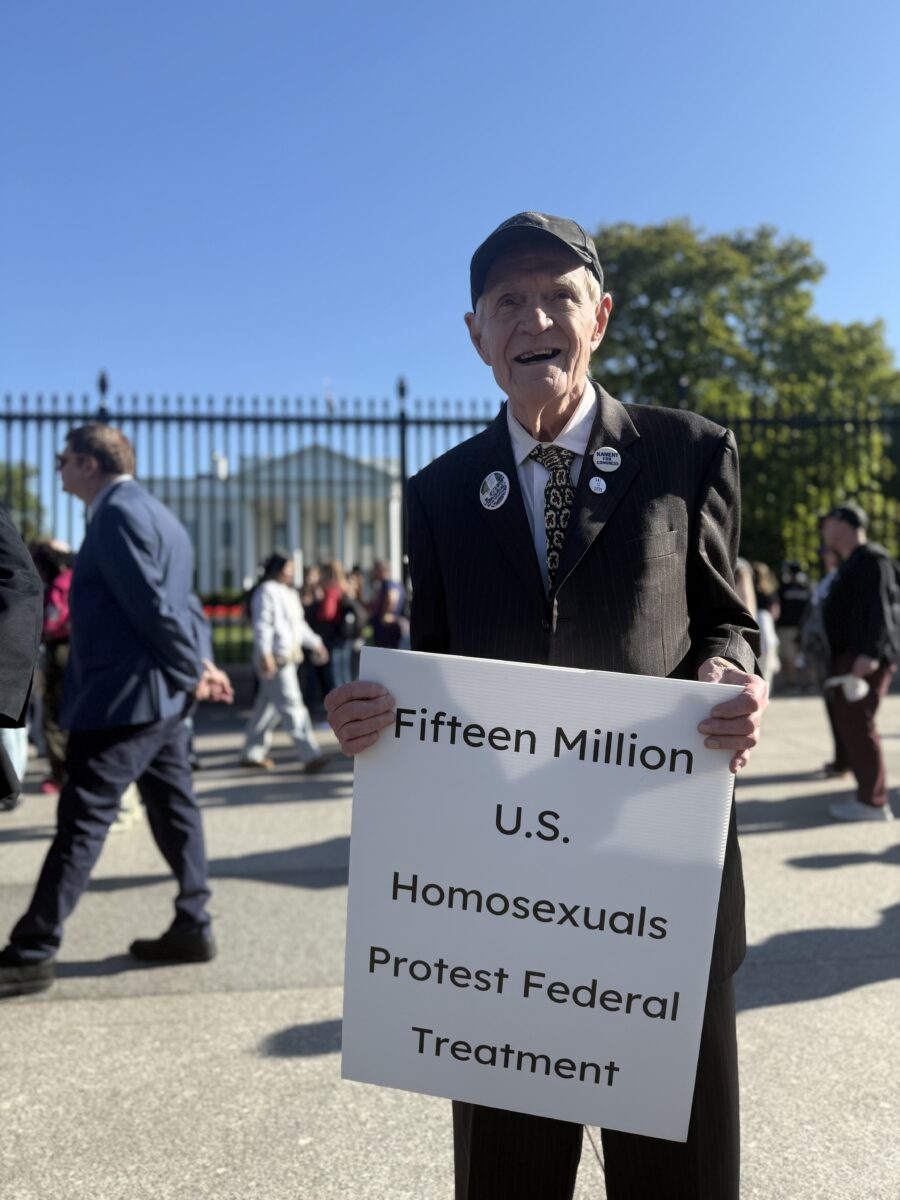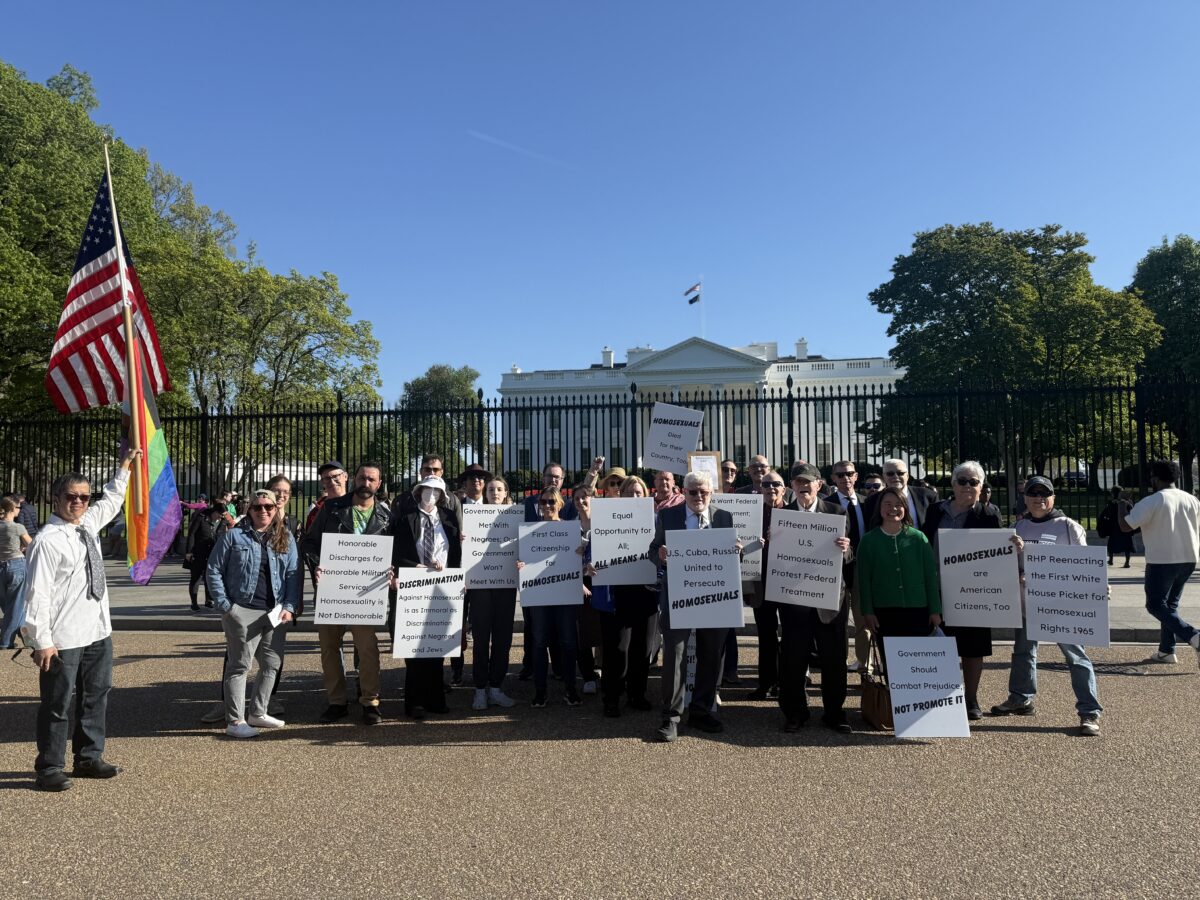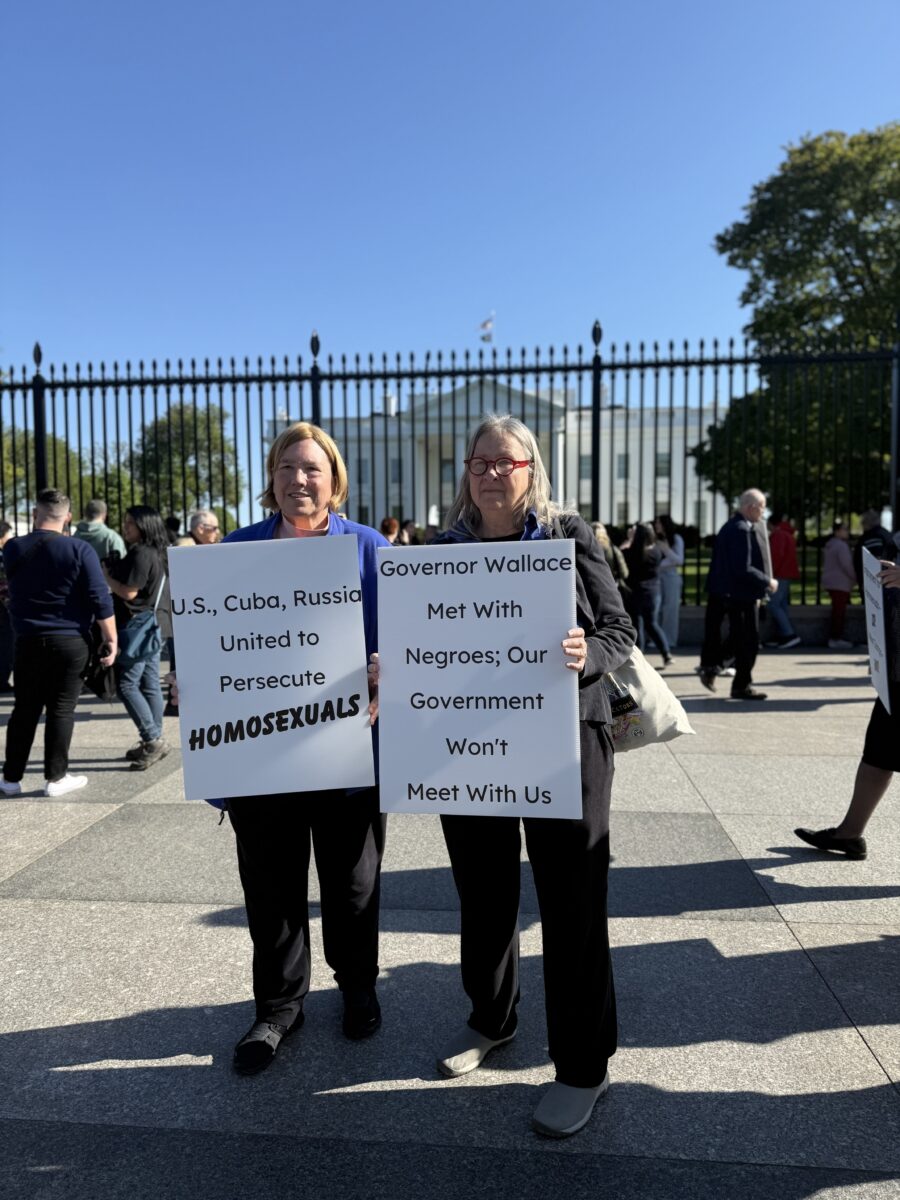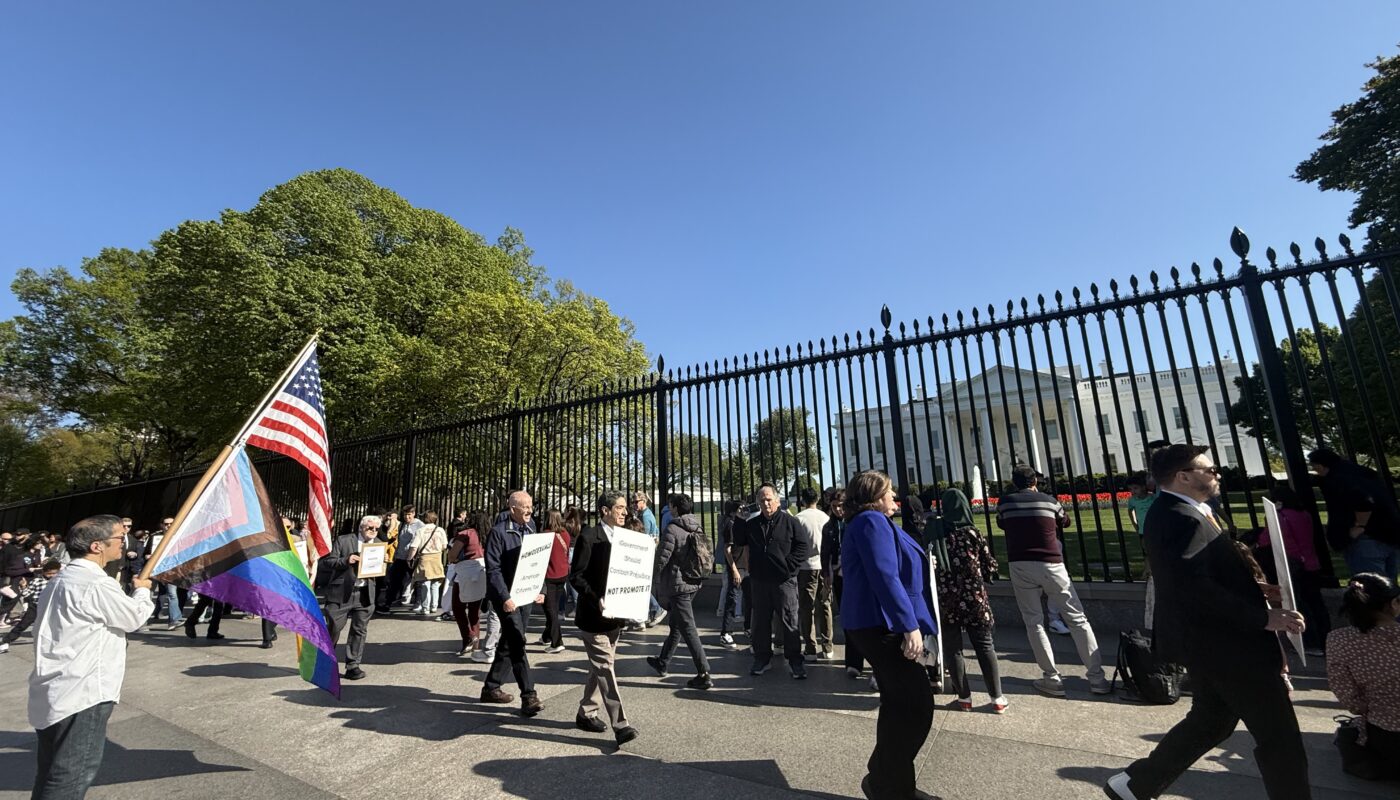On April 17th, nearly three dozen local LGBTQ+ advocates marched at the White House in support of LGBTQ+ rights, just like the Mattachine Society of Washington (MSW) did 60 years earlier in 1965. Paul Kuntzler, the last surviving original picketer, led the group through Lafayette Park to the sidewalk in front of the north lawn – the location of the original picket. Carrying reproductions of the original signs Kuntzler and others carried 60 years earlier, they gathered to fight once again for LGBTQ+ individuals’ access to federal employment.
 Kuntzler was a member of the Mattachine Society of Washington (MSW), one of the first significant gay rights advocacy groups in the District. 60 years earlier, he met with Dr. Frank Kamney, president and founder of MSW, “at Lafayette Chicken Hut on Sunday, Feb. 25, 1962.” There, Kameny–a key activist in the Washington, DC LGBTQ+ community invited Kuntzler to the next meeting of the society, “on Tuesday, March 6, 1962, at Earl Aiken’s apartment on Harvard Street, I became the 17th member of the D.C. Mattachine Society.”
Kuntzler was a member of the Mattachine Society of Washington (MSW), one of the first significant gay rights advocacy groups in the District. 60 years earlier, he met with Dr. Frank Kamney, president and founder of MSW, “at Lafayette Chicken Hut on Sunday, Feb. 25, 1962.” There, Kameny–a key activist in the Washington, DC LGBTQ+ community invited Kuntzler to the next meeting of the society, “on Tuesday, March 6, 1962, at Earl Aiken’s apartment on Harvard Street, I became the 17th member of the D.C. Mattachine Society.”
Just three years later, Dr. Frank Kameny and Dr. Lilli Vincenz organized the first gay rights picket on April 17th, 1965. Often, we’re taught–with increasing rarity because of efforts to dismiss and erase queer histories–that the LGBTQ+ Rights Movement first began with the Stonewall Riots in 1969 in New York City. The moment–and the brick thrown at day–represented a significant step in the fight for queer liberation but they were not the first.
Back in 1965, the 10 original picketers demanded action on MSW’s four major issues: the exclusion of homosexuals from federal employment; the punitive policies of the U.S. Military; blanket denial of security clearances to gay men; and government refusal to meet with the LGBTQ community. Frank Kameny, Ph.D., was fired by the U.S. Army Map Service in 1957 for being gay, kicking off his life-long battle for LGBTQ rights. Lilli Vincenz, Ph.D., was the first lesbian to join the Mattachine Society of Washington, shortly after she was expelled from the U.S. Army for being gay.
 MSW staged several pickets through the summer of 1965 and countless other pickets during the late 1960s. In January 1966, activist and picketer Eva Freund wrote in The Homosexual Citizen that “these groups include[d] housewives, clergymen, business executives, and laborers.” She also wrote that the public had “mixed feelings of disbelief and confusion” about the pickets.
MSW staged several pickets through the summer of 1965 and countless other pickets during the late 1960s. In January 1966, activist and picketer Eva Freund wrote in The Homosexual Citizen that “these groups include[d] housewives, clergymen, business executives, and laborers.” She also wrote that the public had “mixed feelings of disbelief and confusion” about the pickets.
“The casual observer was hard-pressed to distinguish the heterosexual from the homosexual picketer,’” she wrote, adding that these conversations included: “‘I don’t understand – how can homosexuals are learned and intelligent?’ and ‘I always thought you could spot a deviant: now I wonder how many of my friends are homosexuals.’”
 The Rainbow History Project reenacted the historic first gay picket marking one month until the opening of our upcoming exhibit on the evolution of Pride and political resistance: Pickets, Protests, and Parades: The History of Gay Pride in Washington. Alongside the local advocates were eight of our Community Pioneers; Deacon Maccubbin and Jim Bennett, Leti Gomez, Paul Kuntzler, Jessica Xavier, Jill Strachan, Craig Howell, and Lou Chibbaro.
The Rainbow History Project reenacted the historic first gay picket marking one month until the opening of our upcoming exhibit on the evolution of Pride and political resistance: Pickets, Protests, and Parades: The History of Gay Pride in Washington. Alongside the local advocates were eight of our Community Pioneers; Deacon Maccubbin and Jim Bennett, Leti Gomez, Paul Kuntzler, Jessica Xavier, Jill Strachan, Craig Howell, and Lou Chibbaro.
The second-annual reenactment sought to educate community members and the media on the demands of gay and lesbian activists from the early LGBTQ+ Rights Movement and challenge the traditional notion that the modern gay rights movement began at Stonewall 4 years later.
In fact, Washington, DC had a rich, diverse queer community also taking steps to protect their rights to liberty and employment during a time of widespread government persecution, outing, and firing of LGBTQ+ individuals. In many ways, the McCarthyism of the 1950s and 1960s resonates with many LGBTQ+ federal workers together, some of whom marched this past week with the Rainbow History Project, facing discrimination, erasure, and firing. The Hands Off! Movement protests held on the National Mall and around the country this past weekend are evidenced by a growing push to recognize and protect queer history. RHP has been instrumental in this work as a local, grassroots history organization.
